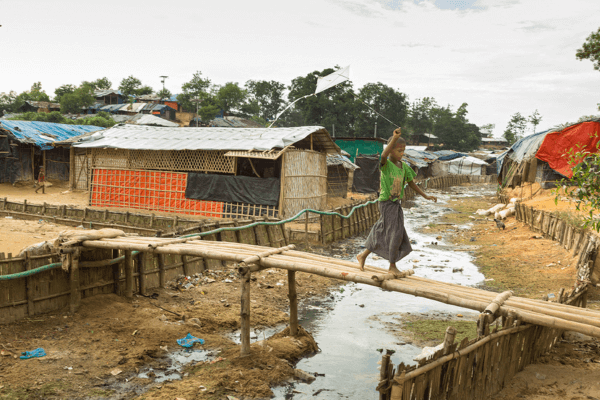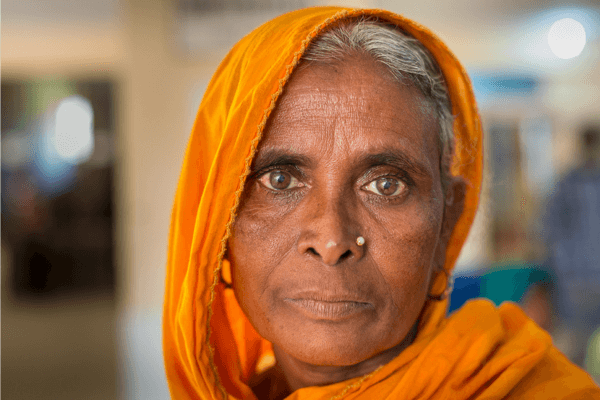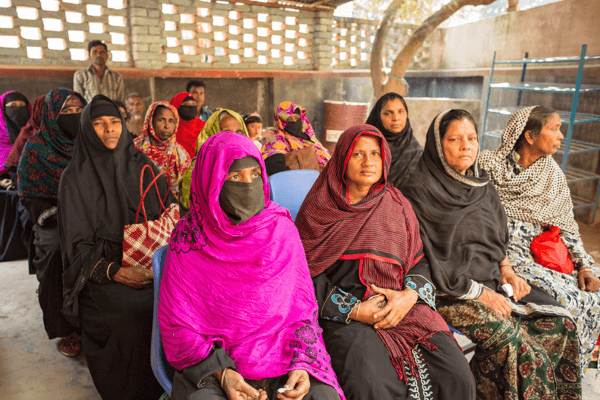Providing Access to Medical Health Facilities for Elderly Women
In Bangladesh, there is one segment of the population that is clearly affected by absolute poverty and thus by inadequate health care: older women in rural areas. Cap Anamur is therefore improving medical care for these women in particular.
Guest commentary by Sophie Kellner
Bangladesh has had a remarkable history of poverty alleviation and development
From being one of the poorest countries when it was created in 1971, Bangladesh achieved middle-income status in 2015. It is on track to be removed from the United Nations’ list of least developed countries by 2026. Poverty decreased from 11.8 percent in 2010 to 5.0 percent in 2022. In addition, human development outcomes have improved in many areas. World Food Program (WFP) surveys found that 12% of the population was food insecure in December 2022, an improvement from the 29% reported in July.
Clear inequalities within the country
Despite this progress, there are still inequalities within the country: firstly, between rural and urban regions, and secondly, between both genders and age groups. Soberingly, gender equality is an area where Bangladesh continues to have significant room for improvement. A closer look at the Gender Development Index – a measure of inequalities in the Human Development Index by gender – shows clear results. Women lag behind in education and per capita income.
Old-age poverty in Bangladesh – the world’s third largest number of poor elderly people
The country’s health care disparity is particularly felt by older women living in rural areas, according to several recent studies. Bangladesh has the third largest number of poor elderly people in the world and 73% of them live in rural areas. In rural areas of the country, more elderly people live in poverty, and there is a lack of social support and access to medical health services. Women’s lack of recognition and gender power imbalances underpin these more difficult conditions for older women.
Studies describe access to health care for rural older women as “socially conditioned.” The findings suggest that policy solutions are needed to promote preventive measures and treatments, for example, by strengthening local clinics. In addition, ongoing health education and training of staff and older women is needed. An adequate support system is required to enable older women to access health care.
Cap Anamur creates access to medical facilities for poorer women in rural areas
In the hospitals supported by Cap Anamur in Bangladesh, indigent patients are treated free of charge, thus ensuring that even the poorest people in the region have access to medical care. Especially for the highly disadvantaged women, this offer constitutes a rare chance to receive adequate medical care.
Through our work, we are able to provide quality health services, especially to women affected by poverty.




